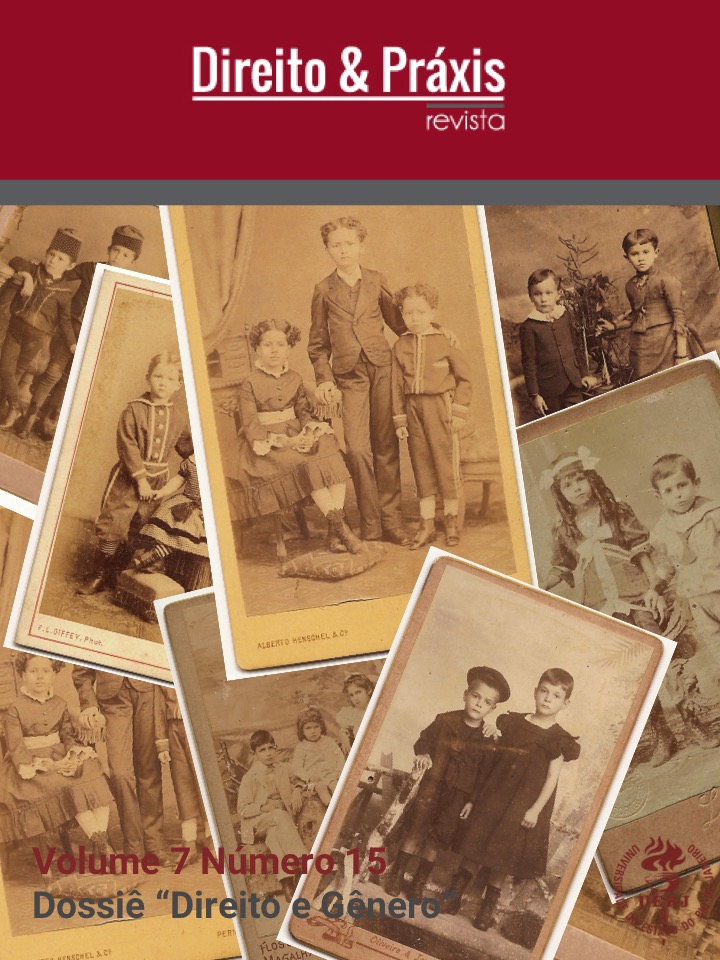Disforia de gênero: geopolítica de uma categoria psiquiátrica / Gender dysphoria: the geopolitics of a psychiatric category
DOI:
https://doi.org/10.12957/dep.2016.25170Palavras-chave:
DSM-5, gênero, disforia de gênero, poder / DSM-5, gender, gender dysphoria, power.Resumo
DOI: 10.12957/dep.2016.25170
Resumo
Em maio de 2013, a quinta versão do Manual Diagnóstico e Estatístico de Transtorno Mental (DSM) foi publicada. O objetivo geral da pesquisa foi entender como uma categoria cultural (gênero) foi transfigurada em uma categoria de diagnóstico psiquiátrico (disforia de gênero). Mais do que discutir a categoria “disforia de gênero”, me concentrei em resgatar dados exteriores ao texto do capítulo, ou seja, tentei refazer a história política de negociação para se chegar a tipificação de disforia de gênero como uma categoria diagnóstica psiquiátrica. Portanto, a pesquisa concentrou-se na sistematização de dados “pré-textuais”: quais as nacionalidades dos membros do Grupo de Trabalho e dos consultores? Quais as referências teóricas acionadas por eles? A partir desta incursão nas entranhas do DSM-5 questiono o desejo de reconhecimento científico (portanto, de universalidade). A pesquisa concluiu que DSM-5 está completamente atravessado pelas marcas culturais de seus formuladores, traz as assinaturas culturais de sua origem e não as perde em nenhum momento. O recorte temporal da pesquisa se deu no intervalo de 2008 a maio 2013, período que compreende o início da revisão à data do lançamento da nova versão do Manual. A metodologia de análise foi a análise de discurso e a técnica, a análise documental. Utilizei os bancos de dados da City University of New York (CUNY).
Palavras-chave: DSM-5, gênero, disforia de gênero, poder.
Abstract
In May 2013, the fifth version of the Diagnostic and Statistical Manual of Mental Disorders (DSM) was published. The overall objective of the research was to understand how a cultural category (gender) was transfigured in a psychiatric diagnostic category (gender dysphoria). Rather than discussing the category "gender dysphoria" I focused on rescue external data to the chapter text, or tried to redo the negotiation of political history to reach the characterization of gender dysphoria as a psychiatric diagnostic category. Therefore, the research focused on systematizing data "pre-textual": What are the nationalities of members of the Working Group and consultants? What are the theoretical references driven by them? From this foray into the bowels of the DSM-5 try to put land to scientific recognition of desire (thus, universality). The research concluded that DSM-5 is completely crossed by the cultural marks of their makers, brings cultural signatures of origin and do not lose them in no time. The time frame of the research took place in the 2008 range to May 2013 period from the beginning of the review to the launch date of the new version of the Manual. The analysis methodology was discourse analysis and technical, document analysis. I used the databases of the City University of New York (CUNY).
Keywords: DSM-5, gender, gender dysphoria, power.
Downloads
Downloads
Publicado
Como Citar
Edição
Seção
Licença
Os textos são de exclusiva responsabilidade de seus autores.
É permitida a reprodução total ou parcial dos artigos da Revista Direito e Práxis, desde que citada a fonte.
Este trabalho está licenciado sob uma Licença Creative Commons 4.0, Atribuição-Sem Derivações.
Esta licença permite copiar e redistribuir o material em qualquer suporte ou format para qualquer fim, mesmo que comercial, desde de que citada a autoria original.
This work is licensed under a Creative Commons Attribution 4.0 International License.




